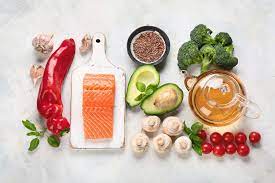Pancreatic cancer is a type of disease that has a very direct influence on the patient’s nutritional status. Sufferers may present multiple digestive symptoms such as dyspepsia or heavy digestion, meteorism or abdominal bloating and anorexia or significant lack of appetite, among others. If there is no early nutritional intervention to revise the diet in pancreatic cancer or after pancreatic surgery, the risk of malnutrition and weight loss, especially of muscle mass, is high.
NUTRITION IN PANCREATIC CANCER DURING CHEMOTHERAPY TREATMENT
When pancreatic cancer is treated with chemotherapy, the side effects usually involve: digestive disorders such as: nausea, vomiting, mucositis, lack of appetite, diarrhea… Although there is no specific diet for cancer treatment, there are foods that can favor tolerance and avoid worsening the symptoms that appear with chemotherapy. Thanks to an adapted diet, it is possible to maintain an adequate nutritional status and thus better tolerate the treatment.
NUTRITION AFTER PANCREATIC SURGERY
The first function is to digest the food that reaches the digestive tract and thus break it down into nutrients that can be absorbed by the intestinal wall. The second function regulates blood glucose by secreting hormones such as insulin. Due to partial or total removal of the pancreas as a cancer treatment, the following complications may occur:
Fat malabsorption.
If the exocrine function is affected, it means that there is an insufficient production of enzymes, which are proteins responsible for the digestion of food. The main symptoms are: weight loss, fatty diarrhea, called steatorrhea and, with it, the possible malabsorption of fat-soluble vitamins (A, D, E, K), among other nutrients. For this purpose, the physician prescribes encapsulated pancreatic enzymes to be taken with meals and, in some cases, vitamin supplements. This will always be under medical prescription since these vitamins can become toxic when they accumulate in the body’s fatty tissue.
At the dietary level, tolerance to fats should be assessed, especially during the first weeks after pancreatic surgery. The reintroduction of food until a balanced diet pattern is reached is done progressively and according to the patient’s tolerance. If fats are not well digested, a special oil, which does not require pancreatic enzymes to be absorbed, can be considered temporarily to increase the energy intake of the diet, thus avoiding undesirable effects such as steatorrhea. This oil provides medium chain triglycerides and is called MCT (Medium Chain Triglycerides).
Hyperglycemia (high blood sugar)
In these cases, the most important thing is to maintain a constant consumption of complex carbohydrates (bread, pasta, rice, legumes, potatoes, cereals, etc.) to avoid hypoglycemia or low blood sugar, which are more dangerous than excess glucose in the blood. At the same time, it is necessary to avoid the consumption of simple sugars such as table sugar, pastries, etc., which favor sudden rises in blood sugar. In many cases, the most appropriate thing to do will be to plan more meals per day and smaller quantities, in order to achieve this continuous supply of carbohydrates. Or even, to avoid restrictions of the dietary pattern in case of suffering anorexia, since avoiding hypoglycemia becomes a priority. To this end, it is important to talk to the healthcare professional who adjusts your diet.
Regarding nutritional treatment, especially if it is from the beginning of the diagnosis, to avoid complications, it can be a great tool to improve the patient’s quality of life. To this end, we recommend consulting a dietitian-nutritionist in the event of pancreatic cancer or after pancreatic surgery, who will adapt your diet to each situation and according to your tastes.













